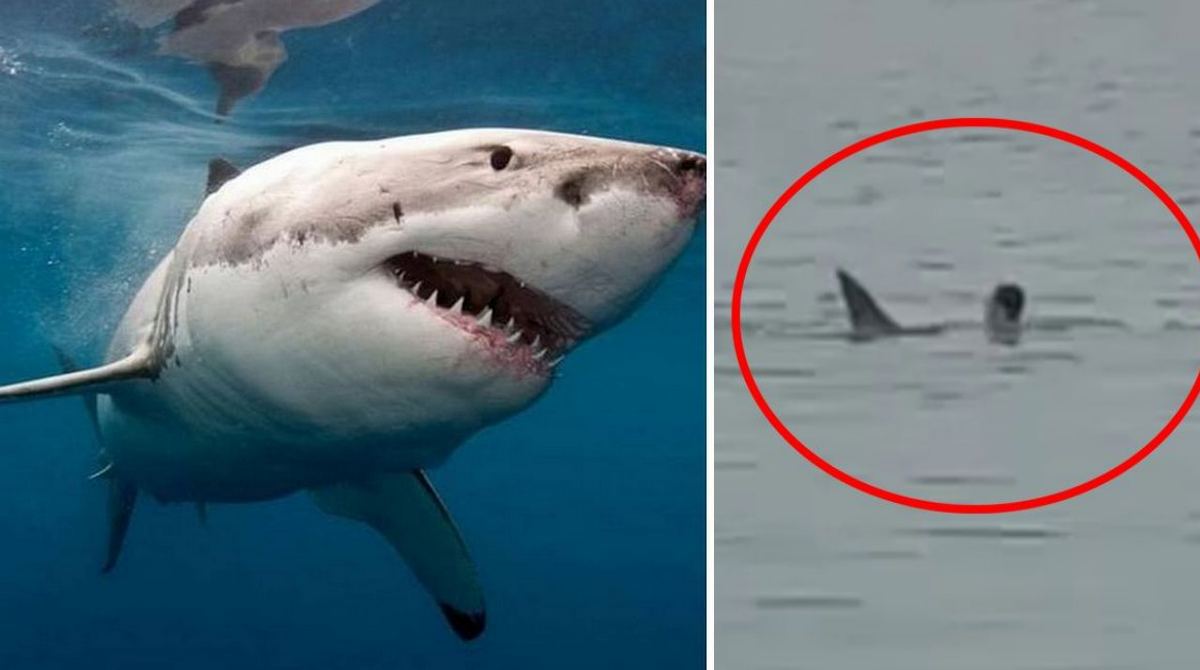Last Thursday was remembered by a shark attack on a Russian tourist on a popular beach in Hurghada. Since then, a lot of details have appeared about the high-profile bloody event, and now the tiger shark that killed the Russian man has been given a “nationality”, which has caused a new wave of heated disputes in the network. The version of “whose predator” was published by the Egyptian newspaper Al Arab.
Since June 8, the Egyptian mass media has been buzzing with news about the attack of a Hurghada shark on a Russian “relocate” and the widespread distribution of videos documenting this terrible incident, as well as other videos showing the capture of the same man-eating fish. Social networks were filled with discussions and controversies about the causes of the incident. The Egyptian journalist Hala Sarhan took part in the dispute and analyzed the factors that led to the shark attack on a person near the coast of Hurghada and spoke live on one of the programs on Egyptian television about the “nationality” of the predator. In her opinion, the shark responsible for the death of a Russian tourist came from Saudi Arabia.
This sparked a new wave of heated arguments between Egyptian and Saudi social media users. The hashtag #shark_saudi topped the list of trends in social networks. Some commentators, however, as well as several Egyptian mass media, supported Sarkhan’s version and agreed with her arguments that the shark is “Saudi” by “nationality”, that is, it was only a guest in the waters of Hurghada and no one fed the predator there.
Experts also intervened in the dispute. For example, the captain of the fishing vessel Ahmed al-Maghrabi from Damietta expressed a terrible opinion. He claimed that the reason for the shark attack on a Russian tourist in Hurghada was related to the blood of people or animals. In the first case, in the waters of the Red Sea, for some reason, not named by the specialist, before, they buried but threw the victims of Hajj into the water. These dead pilgrims died during the journey and were transported to Saudi Arabia by sea. In the second case, livestock transporters refuse to transport animals that die or are maimed during sea transport and decide to dispose of them by simply dumping them in the water. According to the expert, both explanations are a reason for sharks to gather for a “feast” on the outskirts of beaches and sea lanes that lead to Saudi Arabia. This disdainful attitude of people does not prevent fish of all kinds that are dangerous for humans to approach the shores where tourists swim.
By the way, a similar incident with “food in the form of a person” happened in Brazil last month. Then a pack of piranhas, which were fed leftovers from restaurants, attacked the tourists.
As for the tragedy in the country of the pyramids, the Egyptian media, as if trying to “whitewash the local authorities”, began to publish sarcastic statements, according to which the shark was specially sent to harm Egyptian tourism. “It appears that the shark was deliberately sent to strike a blow to Egypt’s tourism and source of foreign income, which has recovered. As they say, a blow hurts. But Egypt is protected from intrigues, conspiracies, war and an accidentally caught predator,” they noted. This statement caused criticism from some users.
Hala Sarkhan later also expressed her opinion on a personal page on the social network: Who among us has already encountered a shark? She pointed out that this is against the laws of the oceans and seas because sharks only live in the deepest and darkest waters.
However, after publishing harsh statements against Saudi Arabia, Egyptian publications faced sharp criticism and were forced to remove them from the network. But the conflict was over. The Egyptians decided to shift the responsibility and hinted that perhaps Qatar was involved in the case, which, however, is even further from Egypt, on the shores of the Persian Gulf: “Yes, Qatar… Everything is not so good there,” they said.
Reference: The border line between Egypt and Saudi Arabia, in particular, stretches across the Red Sea.

